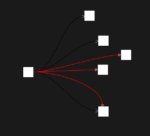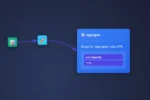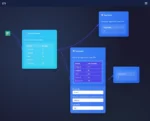In a world that’s becoming a digital neighborhood, language is no longer a mere barrier but rather a strategic enabler. Organizations operate globally, collaborate internationally, and broker critical decisions across multiple cultural contexts. For businesses aiming to harness the power of their data assets effectively, incorporating multi-language support into their data definition repositories is paramount. By bridging linguistic divides, organizations not only enhance their analytics capabilities—they also empower diverse teams, promote clear communication, and unlock deeper data insights. Let’s explore how multi-language support transforms your data repository and positions your enterprise as a forward-thinking innovator.
The Significance of Multi-Language Capabilities in Data Repositories
Today, businesses serve customers, employ staff, and engage partners across diverse regions and languages. The effectiveness of a data definition repository hinges significantly on its accessibility. A single-language repository creates unnecessary limitations, hampering global analytics initiatives and impeding streamlined insights generation across diverse business units. Multi-language support mitigates these issues, transforming the data repository into a universally comprehensible resource. With a multilingual approach, analysts, engineers, and decision-makers navigate complex insights efficiently, shortening the learning curve and improving analytical agility regardless of language proficiency.
Furthermore, organizations can expand their data analytics capabilities into international markets and explore business opportunities beyond traditional linguistic borders. When each stakeholder interacts with relevant data definitions and insights in their native language, there’s an improvement in accuracy and the clarity required to drive strategic initiatives and collaborative decision-making. This linguistic inclusivity ensures higher data literacy, better alignment across global teams, and fewer misunderstandings in multinational projects. Investing in multilingual data tooling is no longer luxury—it is strategic necessity for any organization looking to thrive in today’s globally interconnected data ecosystem.
Challenges Organizations Face Without Multi-language Support
Without meaningful multi-language integration, data definition repositories can become bottlenecks rather than catalysts for innovation and growth. Teams dispersed across different geographies struggle with language-induced friction points, leading to mistakes, duplicated efforts, and inefficiencies. Misunderstandings around vital data terms, fields, and definitions become commonplace, causing unnecessary delays or even misguided strategies that can negatively impact bottom-line results.
One particularly acute challenge is managing culturally nuanced or context-dependent data. Terms may seem direct translations but might carry differing meanings across languages, resulting in unclear or misleading analytics. For instance, without proper language support, strategic initiatives relying heavily on social media data insights can falter due to misinterpreted multilingual sentiment analysis and context. Data teams may risk overlooking differences in underlying intentions or cultural subtleties, affecting critical decision-making.
Moreover, the absence of streamlined multilingual repositories can cause significant talent drain. Skilled professionals from varied linguistic backgrounds prefer environments offering transparent, inclusive, and easily understandable technical documentation and data definitions. Ensuring accurate translations, high-quality documentation, and clear interpretations reduces barriers, enabling staff globally to increase productivity while minimizing errors stemming from language constraints.
Enhancing User Experience with Language-Aware Data Processing
To effectively implement multi-language capability, organizations can leverage advanced technical mechanisms such as custom collators for language-aware data processing. Custom collators are designed explicitly for sorting, matching, and searching textual data based on linguistic nuances, ultimately enabling an improved end-user experience. These tools empower organizations to systematically handle multilingual textual data, ensuring accurate, culturally sensitive analyses, and more reliable cross-border insights.
Employing language-aware solutions facilitates meaningful interactions with data, promoting smoother integration within enterprise decision-making workflows. Defined and standardized multilingual terminology directly impacts users’ confidence and trust in the data. Furthermore, language-aware processing ensures data models, analytics visualizations, and dashboards cater effectively to multicultural and geographically dispersed teams, bridging communication gaps and enhancing clarity.
Additionally, language-aware repositories enable seamless semantic search capabilities. Semantic search goes beyond keyword matching by integrating meaning and language context, greatly amplifying the discoverability and usability of critical business information. Implementing a robust vector-embedding pipeline designed specifically for semantic search applications empowers users with smarter, contextually accurate searches, further enriching the overall user experience across languages.
Impact on Data Modeling and Geospatial Analytics
The benefits of multilingual support extend well beyond standard business definitions. In technically demanding practices like data modeling or multi-dimensional location intelligence through geospatial tensor analysis, linguistic precision becomes critical. Misinterpretation of dimension labels, spatial categorizations, or location intelligence terminologies can deeply skew analytical projections or the interpretation of results. Multilingual repositories minimize these risks, ensuring data models accurately reflect cultural and local business contexts.
By carefully embedding multilingual support within your dimensional modeling processes, organizations can more accurately capture local nuances. Consequently, your data warehouse or analytics model offers clearer, more relevant, and contextually precise views across different user segments and geographical locations. It prevents costly misinterpretations on dimensions or metrics, yielding cleaner and more actionable insights.
Furthermore, by supporting multiple languages in your geospatial analytics frameworks, you boost the organization’s capability to serve global decision-makers. Leveraging multilingual standards clarifies data model presentations, ensuring that robust location-based analytics are consistently interpretable across borders. This clarity empowers global organizational leaders to utilize location intelligence confidently, strengthening their strategic actions and enhancing organizational decision maturity globally.
Advanced Considerations: Isomorphic Data and User Interface Interactions
Adopting multi-language architecture isn’t limited to databases and repositories alone; it also involves sophisticated, consistent software architectures that can handle complex linguistic integrations. With isomorphic data processing, enabling shared logic across client and server layers, organizations foster uniform multilingual integrations. Isomorphic architectures offer significant enhancements in terms of scalability, development velocity, and maintainability of multilingual definitions, providing coherent and universally accessible user interfaces.
User interfaces benefit from consistent multilingual data standards considerably, by linearly reducing latency in multi-region business operations. Intelligent and intuitive multilingual URL structures, localized datatypes, and UI interactions optimized for multilingual transitions enhance accessibility and usability. Equipping your user interface with reliable features such as view transitions in multi-state visualizations further elevates user engagement and ensures a comprehensible multilingual experience.
Employing proper multi-language support in your isomorphic processing architecture aligns communication among diverse global stakeholders. By providing efficient multilingual client-server interactions, you ensure information consistently reaches end-users clearly, ultimately increasing productivity, data literacy, and organizational efficiency.
Position Your Enterprise for Competitive Advantage
Organizations often regard multilingual capabilities merely as a compliance checkbox. However, forward-thinking strategists recognize multilingual support as much more—it’s a crucial competitive advantage. Robust multi-language features in your repository align your enterprise infrastructure with global markets. Clear and accessible data definitions differentiate your organization from competitors, particularly regarding international analytics use cases.
Incorporating multilingual frameworks fundamentally strengthens cross-cultural collaboration, analytical maturity, organizational communication, and overall innovation. Enterprises taking advantage of multilingual capabilities position themselves as prominent global players, equipped to capitalize on international market insights and innovations rapidly. When paired with services such as Power BI consulting services and expert multilingual implementations, organizations accelerate their global intelligence capacity.
As we move increasingly toward a borderless, digitally collaborative future, multi-language data strategies are not just optional—they become an integral part of business agility and continuity. Enterprises leveraging multilingual sophistication now position themselves as proactive leaders, future-proofing their analytics environments and driving sustained competitive advantage globally.
Conclusion
Adopting multi-language support within your data definition repository is a transformative choice that delivers extensive benefits, greater accuracy, and strategically advantageous insights. It’s about positioning your enterprise as truly global, linguistically agile, inclusive, digitally mature, and innovative. By embracing advanced multilingual capabilities, your business harnesses clearer insights, achieves smooth international collaborations, and secures a lasting competitive edge today—and for the future ahead.
Thank you for your support, follow DEV3LOPCOM, LLC on LinkedIn and YouTube.

























